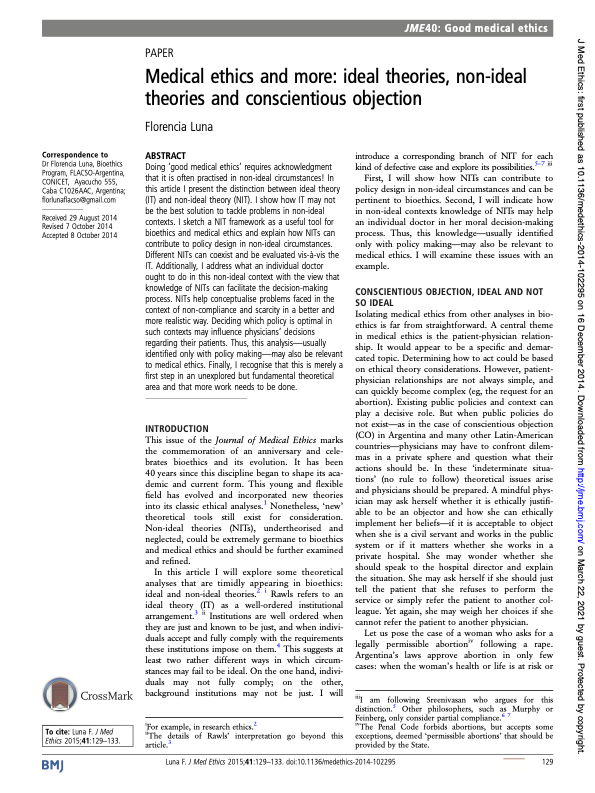Medical ethics and more: ideal theories, non-ideal theories and conscientious objection
Publicación
Idioma
Autoría
Resumen
Doing ‘good medical ethics’ requires acknowledgment that it is often practised in non-ideal circumstances! In this article I present the distinction between ideal theory (IT) and non-ideal theory (NIT). I show how IT may not be the best solution to tackle problems in non-ideal contexts. I sketch a NIT framework as a useful tool for bioethics and medical ethics and explain how NITs can contribute to policy design in non-ideal circumstances. Different NITs can coexist and be evaluated vis-à-vis the IT. Additionally, I address what an individual doctor ought to do in this non-ideal context with the view that knowledge of NITs can facilitate the decision-making process. NITs help conceptualise problems faced in the context of non-compliance and scarcity in a better and more realistic way. Deciding which policy is optimal in such contexts may influence physicians’ decisions regarding their patients. Thus, this analysis—usually identified only with policy making—may also be relevant to medical ethics. Finally, I recognise that this is merely a first step in an unexplored but fundamental theoretical area and that more work needs to be done.

